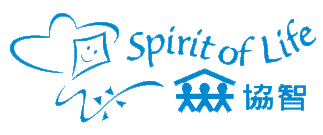Developmental Disability (DD)
People diagnosed with a developmental disability have intellectual and everyday living skills substantially below their age and often require support in many aspects of everyday life. Specifically, criteria for a developmental disability are defined as follows:
- the person must have general intellectual ability (IQ) in the sub-average range, also known as the range of Mental Retardation.
- there must be impairments in the ability to manage the activities of daily living such as personal care (e.g., banking, shopping), or workplace activities (e.g., able to follow instructions)
- this impairment must have occurred before the age of 18 years.
Developmental Disabilities can include diagnosis such as: Down Syndrome, Fragile X Syndrome, Autistic Spectrum Disorder, Fetal Alcohol Syndrome, Cerebral Palsy etc.
There are different levels of Developmental Disabilities:
- Borderline
- Mild
- Moderate
- Severe
- Profound
When working with people with Developmental Disabilities:
- Teach skills that are age & socially appropriate, with expectation that is realistic to the individual’s level of functioning.
- Abstract reasoning is usually difficult, use objects in the environment to teach new skills.
- Communication deficits may be present. You may have to change the way you talk to be understood.
- Verbal behaviour is not the only way of communication. Inappropriate behaviour may be a result of lack of comprehension or inability to perform the required task.
- Treat the individual as you would like others to treat you.
If you have concerns about your child’s development, you can contact:
- Your family physician / Pediatrician
- Public health nurse
- Community health centre
- Teacher/counselor/principal of your school
- Developmental clinics in your local hospital
- Surrey Place Centre (City of Toronto)
- Kinark Child & Family Services (York Region)
被診斷患有發育障礙的人的智力和日常生活技能遠遠低於同齡,並且往往需要在日常生活的許多方面提供支持。具體而言,發育障礙的標准定義如下:
該人必須具有在低於平均範圍內的普通智力(IQ),也稱為智力遲鈍範圍。
管理日常生活活動的能力,如個人護理(如銀行,購物)或工作場所活動(例如能夠遵循指示)必須存在障礙,
這種損害必需發生在18歲以前。
發育障礙可以包括諸如以下的診斷:唐氏綜合症,脆性X綜合徵,自閉症譜系障礙,胎兒酒精綜合症,腦性麻痺等。
有不同程度的發育障礙:
- 邊緣
- 溫和
- 中等
- 嚴重
- 深度




